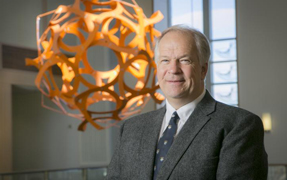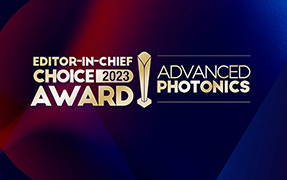SPIE President’s Corner
Glenn Boreman offers a few thoughts on optics education.
Optics is a bit of a funny academic discipline. It is different from electrical engineering, mechanical engineering, or physics in that most of the faculty in departments that grant degrees in optics do not have degrees directly in the field.
This diversity of backgrounds is healthy to be sure, but it can have its drawbacks in terms of the faculty as a whole agreeing on a required core curriculum, particularly in graduate programs.
The way that graduate study is funded, at least in the USA, is that the faculty pay the students’ stipends (and lots of other expenses) out of their research grants. So when a department goes looking for a new tenure-track faculty member, the search committee is pretty strongly focused on the candidate’s potential for acquiring research funding.
Now, most researchers are specialists in a fairly restricted area, which is completely understandable given the depth of knowledge required for success in today’s hyper-competitive funding environment. Human nature being what it is, most people think their specialty is pretty important. But, it needs to be recognized that optics, as its own separate field, has certain distinctive knowledge components that the community — particularly in industry — expects from someone with a degree in optics.
It seems a legitimate employer expectation that a job candidate with an AS, BS, MS, or PhD in optics has a good facility with lasers as well as a working knowledge of one of the standard design codes and a solid background in such mundane and old-fashioned topics as geometrical optics, radiometry, interferometry, and Fourier optics.
I have heard geometrical optics called trivial in faculty meetings more than enough times. It is indeed simple if all you do is scratch the surface, but when you look in more detail, it is so complex that you barely know where to begin. Sometimes, even the simple aspects can be a little non-intuitive.
A graduate with a degree in optics who cannot explain the utility of an extender tube in a camera or make a depth-of-field estimate looks a bit ill prepared.
If we were solely training future academicians, then we could afford to be more narrow and cutting-edge in our choice of required topics. However, educators should recognize that most of our students will not be employed in the academic sector as there simply are not enough positions to go around. And many actually seek out the challenges and opportunities that come with a job in today’s high-tech industries.
And we should perhaps remember that having an optics degree, or especially a few of them, can be somewhat restrictive in terms of employment.
In my experience, if the employer is looking specifically for a person with an optics background, then your resume rises near the top of the pile. But if the employer is looking for someone with a less specific background, then good luck.
The fact that optics is a specialty discipline within physical science and engineering makes it all the more desirable that people coming out of school with optics degrees have the right background.
SPIE has a leading role to play in the continuing progress for the recognition of optics as a separate and distinct engineering discipline. Our representation to and participation with ABET, the engineering and technology accreditation board in the USA, is a good example of this.
SPIE was the scientific society co-lead that worked with ABET to establish and formalize distinct optics and photonics criteria for the accreditation of undergraduate degree programs in optical and photonics engineering.
Since the criteria were adopted in 2014, US programs undergoing accreditation review have benefited from evaluation measures specific to our discipline, rather than to engineering in general. Students, faculty, and employers can now be confident that a program meets the quality standards that produce graduates prepared to enter a global workforce.
This year at ETOP, the international conference on Education and Training in Optics and Photonics, participants from the US, China, Singapore, Canada, and elsewhere shared some of the common issues and considerations for optics educators pursuing university accreditation in their countries.
One challenge has been the considerable amount of student mobility among educational institutions across the globe and the lack of coordinated accreditation standards between countries. Reliable, compatible, and recognized standards for all optics and photonics programs would streamline international student transfers between universities and ensure that each program provides graduates with the technical and professional skills expected by employers of optical engineers everywhere.
On a recent visit to NASA Jet Propulsion Lab, I was pleased to see that its human-resources department has a separate position and title for optical engineer. They have the right idea there, and it should be the rule rather than the exception.
I was even happier to know (but not surprised) that both of my PhD graduates who work there have that title.
I look forward to meeting more SPIE members during the year. At whatever conference we are together, please come up and say hello.

Glenn Boreman, 2017 SPIE President
- Have a question or comment about this article? Write to us at spieprofessional@spie.org.
- To receive a print copy of SPIE Professional, the SPIE member magazine, become an SPIE member.



